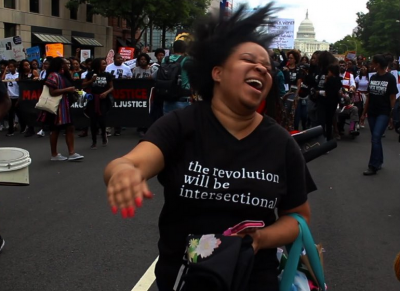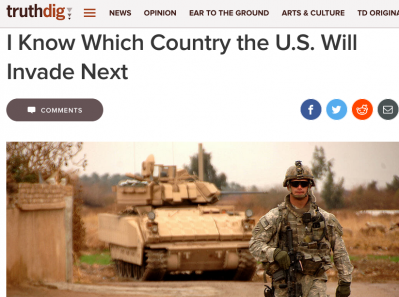1/10/2019 By Eleanor Goldfield
On December 22nd, Senator Warren took to Twitter and summed up some dangerously depressing news: “The Violence Against Women Act (VAWA) — which supports critical programs to help victims of sexual assault, domestic abuse and stalking — expired at midnight. We could have funded it, but (Trump) would rather shut down the government for a wall that doesn’t make us any safer.”
From legal advocacy to medical exams to educational programs to safe housing to special consideration for undocumented, native, LGBTQ and other marginalized groups, VAWA provided funding for some of the only resources that survivors have in this system. The deadline originally loomed way back in September when a 5-year renewal came up for a vote. Lawmakers kicked the can to December 7th – and then to December 21st. By the 22nd, our government shut down due to a stalemate over Trump’s beloved border wall, sending countless programs and workers into financial free fall.
With regards to VAWA, this means more than a missed paycheck or two – a scary enough situation in a system with high poverty rates and no safety net. It means that many programs offering free rape exams, translation services, and legal advocacy won’t be able to. It means that shelters for survivors might not be able to stay open, forcing many women to choose between the street, a homeless shelter (where sexual assault is common) or staying in an abusive, potentially life-threatening situation. It means that particularly at-risk communities, like Native women, will have stalled access to federal grants for their domestic and sexual violence programs. To say that VAWA needs to be bolstered asap is a gross understatement. Even then, however, the funding window is embarrassingly small.
As it stands now, the current extension of VAWA would only last till February 8th – that is, if the proposed funding package clears the orange troll’s desk. And this extension would not even include proposed changes which “would have expanded protections to Native American tribes, kept convicted domestic abusers and stalkers from having legal access to firearms, expanded economic security and housing opportunities to survivors of domestic violence and created more education and prevention programs.” Because homeless indigenous sexual assault survivors being stalked by white men with guns and cowboy hats is what makes America great. Indeed, the fact that Native women pop up continuously in this political tug-of-war is no accident. One might even say it’s an American tradition.
In December, a single white man managed to block an entire bill intended to improve the federal government’s response to violence against Native American women. Before leaving office, Bob Goodlatte (R-VA), chairman of the House Judiciary Committee, refused to bring Savanna’s Act up for a vote because he objected to the idea of giving indigenous women preferential treatment in enforcement policy. The problem is of course that indigenous women and girls face preferential violence on a scale that surpasses any other demographic. “According to the recent National Institute of Justice report released May 2016, research shows that 4 in 5 Native women (84.3%) will experience violence in their lifetime.” “More than half of Native women (56%) have experienced sexual violence. Native women are 2.5 times more likely to experience rape than other women in the nation.”
These numbers are staggering – and yet they are incomplete. In previous reports I’ve outlined how there’s no comprehensive database to deal with missing or murdered indigenous women – furthermore, there are horrendous legal restrictions on investigating, prosecuting and punishing crimes against indigenous women and girls. Savanna’s Act, sponsored by previous senator Heidi Heitkamp of North Dakota, would give tribal communities access to federal databases for tracking missing tribal persons, require the Department of Justice to consult with tribes on developing guidelines, mandate reporting statistics on missing and murdered Native Americans to Congress, and streamline the horribly facocked lines of communication between tribes and law enforcement agencies vis a vis training and technical assistance in putting the guidelines in force. Goodlatte took issue with the law enforcement guidelines in particular, meaning that he’s not necessarily against the idea of documenting this extreme violence against indigenous women. He’s really just against the idea of doing anything about it. The lineage of colonial white supremacist violence is uncanny. Still, this is not the only connection to focus in on.
If we zoom out from the issue of Missing and Murdered Indigenous Women (MMIW) again to the broader Violence Against Women Act, we not only see the familiar old, white crotchety faces of men who have absolutely no interest in the physical, emotional or mental wellbeing of the majority of people in this country (i.e. women, LGBTQIA, immigrants, indigenous or otherwise marginalized communities). We also see where true feminism must be built, fostered and radicalized. If you want to know where the fiercest power of women will come from, look to the places where the system has poured the bulk of its ire, disdain, neglect and oppression. The system’s dividing lines between oppressed groups and identities represent critical blockades to stop the progression of our hopes, our goals, our demands. As a white woman, my fight for women’s rights is no feminism at all unless I work with (and oftentimes follow the lead of) black, brown and indigenous women. Likewise my fight for environmental justice can not be complete without acknowledging the racism of energy policy in this country, and how that ties into public health, police brutality, education, income inequality and so on. Every issue that they have divided and we have built silos for has a connection to every other issue. No one lives in a singular vacuum.
If we accept that all of our issues are connected under the vast and vicious umbrella of a patriarchal, white supremacist capitalism, there is no hope for any of our issues without connection and collaboration. In this sense, Senator Warren’s silence on MMIW and vocal support for VAWA is an inadvertently perfect example of the exclusionary, mono-faceted thinking that often pedestals white, predominantly well-off women at the expense of all other marginalized women and femmes. The fact that Warren’s tweet comes after her abysmal attempt at claiming Native ancestry while being quiet on Indigenous issues simply serves as a shitty bow on a disappointing package.
Our lives are far more than political hockey pucks for the ruling elite to volley back and forth. And this is why we should be careful in placing any hope in the system recognizing its trespasses against us. Indeed, no ruling system ever has. Meanwhile, political lip service saws at the intersections of our power, always asking us to throw our energy behind campaign slogans rather than our rights, shared dignity and basic survival. But as the government shutdown drags on, we see exactly what these slogans bring us – at best, nothing more than we would bring ourselves and at worst, oppression sprinkled with the distraction from our own collective potential, our own power. In order to make the large-scale changes that center on the most marginalized, to manifest not only VAWA and Savanna’s Act but far beyond, we must meet in those corners of division and intersection. We have to flood the no-man’s land of state-unsanctioned collaboration with our voices, our stories and our actions.
Please notice there are no ads on this site. We’re able to continue due to small donations from people like you. Please donate or become a member.
Also check out Eleanor Goldfield’s weekly podcast with Lee Camp called Common Censored.





